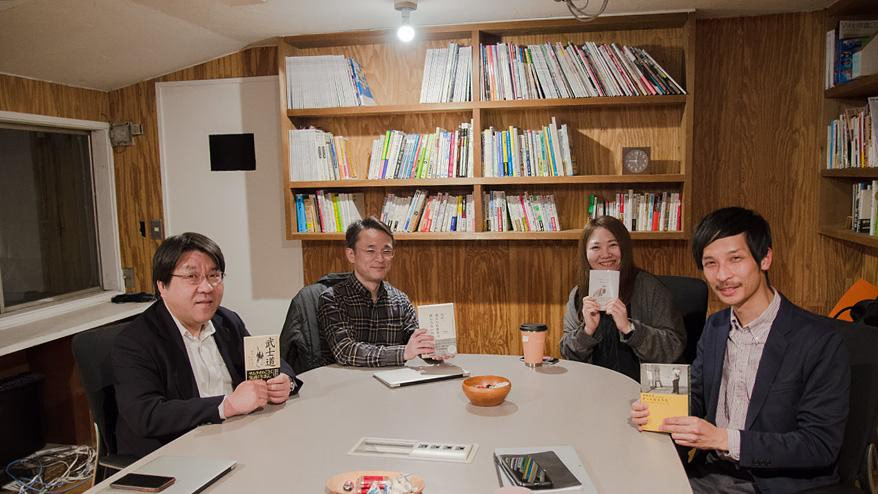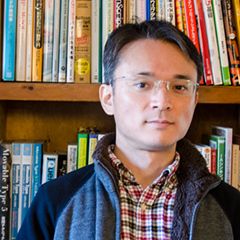図書委員長の村上です。
今月の読書会のお題は「積ん読になっている本」。
積ん読…みなさんの本棚にも買っただけで積まれている本、あるのではないでしょうか?
なかなか読む時間がない、ならば読書会で読む機会をつくりましょう!
ということで、今回のテーマを設定しました。
今回は、モノサス最年少で品質管理部の乾(いぬい)と、神山ものさす塾の卒塾生でマーケティング部の羽賀が初参加。
初々しい顔ぶれを交えて、読書会スタートです。
発表タイム
40分間の読書タイムを終えたら、ひとり5分間でその本を紹介します。
-
なぜ仕事が終わらない?働き方を考えてみる。
『 なぜ、あなたの仕事は終わらないのか スピードは最強の武器である』
(紹介者 村上 伊左夫) -
柔らかくアートに触れる、気軽で小さな物語。
『 アートの入り口 美しいもの、世界の歩き方[ヨーロッパ編]』
(紹介者:羽賀 敬祐) -
かつて5千円札だったあの人の、歴史的著作。
『武士道』(紹介者:上井 正之) -
大人だけど、時事ネタ知らなくてもいいんだなって。
『時事ネタ嫌い』(紹介者 乾 椰湖)
なぜ仕事が終わらない?働き方を考えてみる。
『 なぜ、あなたの仕事は終わらないのか スピードは最強の武器である』(紹介者 村上 伊左夫)
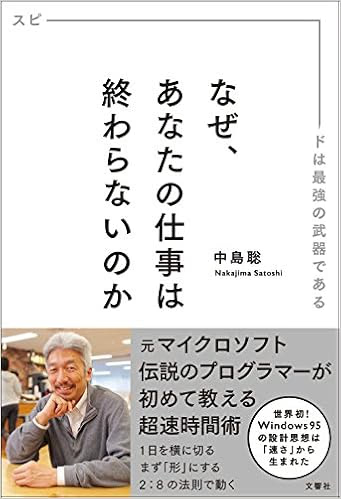
中島聡(著)『なぜ、あなたの仕事は終わらないのか スピードは最強の武器である』
文響社 2016(Amazon)
-
 村上
村上 -
タイトルに惹かれて読もうと思いつつ積ん読になってました。著者は元マイクロソフトで右クリックの概念を作った中嶋聡さん。今年からモノサスもフルフレックス制が導入されたり、世間でも働き方改革とかいろいろあって、自分の働き方を見直すきっかけになるかなと思って持ってきました。
内容は大きく4つに分かれていて、第一章では「仕事がおわらない」理由として、以下の3つが挙げられています。
- 仕事を安請け合いしちゃう。
- ギリギリまでやらない。
-
計画の見積もりをしない。
「1. 安請け合い」とは、例えば数学のテストで、最初の基礎問題のところで簡単だと思ってすべての見積もりを立てると、応用問題に時間がかかって計画どおりに終わらない、というパターン。
「2. ギリギリまでやらない」は、メール返信とか細々したことをやってるうちに、本来の重要な仕事をやる時間がなくなって、徹夜で対応したけど間に合いませんでした、となるパターン。
「3. 計画の見積もりをしない」は、プログラム開発時に最初になかった機能を後から追加してしまい、全体の引き伸ばしや当初と違うものになってしまうなど、計画に沿った進行ができないパターン。
これって誰でも身に覚えがあると思うんですよね。資料作成でも、実際に取り掛かるといろんなことが思い浮かんできて、1日のつもりが2、3日かかってしまったりとか。
じゃあどういう時間の使い方をすればいいのか。第二章では、著者の時間術(ロケットスタート時間術)について説明しながら、これをマスターするメリットが述べられています。第三章では時間術が生み出された経緯、第四章以降で実際のノウハウを紹介、という構成なっています。
面白かったのが「なるはや」をやめれば緊張感が生まれる、ということ。
「なるはや」は締切のない曖昧な指示だから、具体的な締切りを設定することで、もっと効率良く回るんじゃないかと。実際「なるはやで」と渡されても、困ってしまうんですよね。他の案件もあるし優先順位どうするのかとか。日常の仕事でも、なるべく「なるはや」はやめてほしいとお願いしてたんですけど、やっぱりそうなんだなって納得しました。
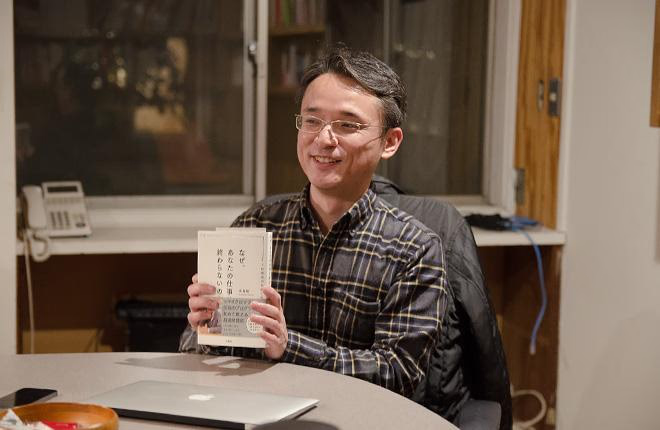
-
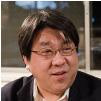 上井
上井 -
安請け合いとか、なかなかやらないってのは...こう、ちょっとね、ズキズキと(笑)。
-
 村上
村上 -
チェックでも工数どれくらいですかって聞かれることがあるんですけど、最初はやっぱり概算でしか出せなくて。実際やってみるとスケジュール調整が必要になったりとか。やっぱりどういう仕事でもそうなんだなと。 後半の肝心なところがこれからなので、最後まで読んでいこうと思います。
柔らかくアートに触れる、気軽で小さな物語。
『 アートの入り口 美しいもの、世界の歩き方[ヨーロッパ編]』
(紹介者 羽賀 敬祐)
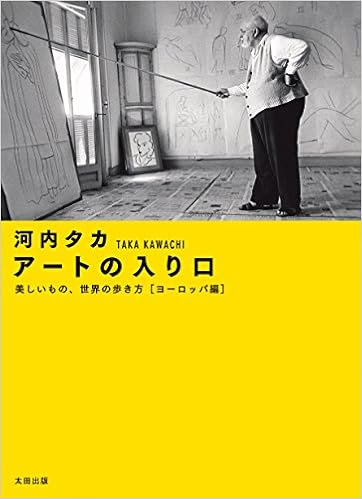
河内タカ(著)『 アートの入り口 美しいもの、世界の歩き方[ヨーロッパ編]』
太田出版 2016( Amazon )
-
 羽賀
羽賀 -
もともとアートが好きで、地元の広島にいたときも休日に美術館やギャラリーに行くのが楽しみで。今日持ってきた『アートの入り口 美しいもの、世界の歩き方[ヨーロッパ編]』も、その前の[アメリカ編]を読んでいてすごく面白かったので手に取りました。
ピカソやゴッホから、デヴィッド・ボウイやロバート・キャパまで、絵画だけでなく写真や音楽系のアーティストまで取り上げられていて。
アートに関することが書かれているのですが、内容は物語的というか...たとえば、画家のアンリ・マティスは実は切り絵が好きで、晩年はずっと切り絵をしていたとか。そのアーティストが生きた時代や環境を、傍らで見ていたのかなというくらい詳細に書いてあるんです。 2、3ページくらいの小さな物語が359個。フィルムのようにつながっていくような章もあって、飽きずに、ちょっと空いた時間に読めるような内容です。著者の河内さんは現代アートや写真のキュレーションを手がけていて、今は Amana Photo Collection のチーフ・ディレクターをされていますが、ほんと四六時中アートのことを考えているんじゃないかってくらい、いろんなことに精通していて。 それに、マティスを紹介するときにセックス・ピストルズを引き合いに出したりとか、ちょっと変わった切り口で説明している。
硬くならず、もうちょっと柔らかくアートに触れられるというか。 知らないアーティストを知るきっかけにもなるし、知ってる場合はより理解を深められる。まさに「アートの入り口」になる本だと思います。
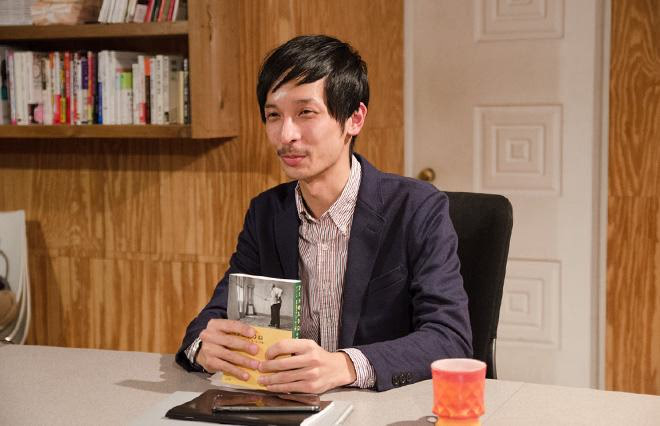
-
 上井
上井 -
アメリカ編とヨーロッパ編って、どんな違いがあるんですか?
-
 羽賀
羽賀 -
そうですね、単純に取り上げているアーティストの違いかも。 積ん読になっていたのでまだあまり読めていないのですが、中でもマルセル・デュシャンの章はシンプルで分かりやすかったです。あの有名な、便器の...
-
 上井
上井 -
「泉」だ。
-
 羽賀
羽賀 -
あ、それです。ただの便器を置いて他人の名前を書いてそれがアートだっていう。コンセプチュアル・アートの先駆けですけど、デュシャン本人の言葉を例に出して、物自体に 意味はなくて、それをアートと解釈したことが重要なんだということが分かりやすく説明されていました。
-
 村上
村上 -
本当に「入門書」的な感じなんですね。
-
 羽賀
羽賀 -
はい。一般的に知られていないようなエピソードも書かれているので、アートに詳しい人も楽しめる入門書だと思います。
かつて5千円札だったあの人の、歴史的著作。
『武士道』(紹介者:上井 正之)
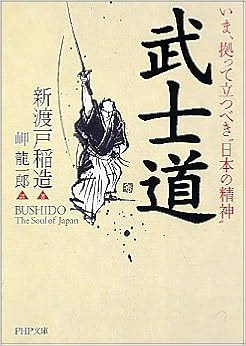
新渡戸稲造(著)『武士道』PHP研究所 2005( Amazon )
-
 上井
上井 -
新渡戸稲造の『武士道』を選びました。 いま社内でマネージメントの勉強会をやっていて、そのなかで技術士倫理綱領にも少し触れたんですけど。日本人が持っている倫理観、宗教を持たない国民がいかにして倫理観を醸成してきたのか...そういうことを考えるのにピッタリだと思って、長いこと積ん読にしてましたが持ってきました。
紹介文に「かつての日本には我が国特有の伝統精神があった。その一つが武士道である。それは新渡戸稲造が1899年に『武士道』を発表し、世界的な大反響を巻き起こしたことでもわかる。本書はその現代語訳である。日本人とは何かを問い、倫理観と道徳観を見直すことが出来る恰好の書である」とあります。
明治時代に海外に向けて英文で書かれた本だということは、歴史的な知識として知ってたんですけど、ちゃんと読んだことはなくて。西洋の人たちに対して日本の「武士道」を紹介するために、西洋の似たような成り立ちのものと照らし合わせながら説明する形が取られていて、そこも面白いんです。もっと早く読み始めればよかった。
まだ冒頭しか読めてませんが、この本はちゃんと読んでいきたいなと思いました。
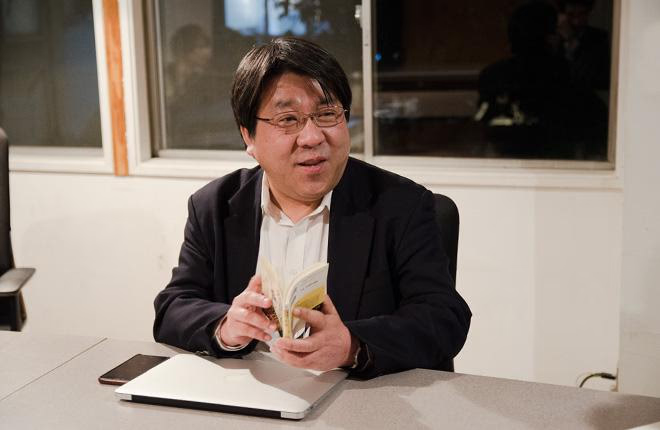
-
 村上
村上 -
私も書かれた経緯はざっくり知ってたんですけど、読んだことなくて。 新渡戸稲造って士族出身なんですね。もともと支配階級じゃない人が書いてたとしたら、どういう見方なんだろうなってちょっと素朴な疑問を覚えました。 私も読んでみたいですね、これは。
-
 上井
上井 -
新渡戸稲造が、5千円札になったときも全然知らなかった(笑)。あ、今は樋口一葉か。 お札になった時にこの本もちょっと話題になったんだけど、ついぞ読まなかった。
-
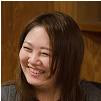 乾
乾 -
お札に選ばれる人の基準って、昔は政治家とか権力のある人が多くて。 でも今は小説家とかお医者さんとか、世相が出てますねぇ。
大人だけど、時事ネタ知らなくてもいいんだなって。
『時事ネタ嫌い』(紹介者 乾 椰湖)

菊地成孔(著)『時事ネタ嫌い』イースト・プレス 2015( Amazon )
-
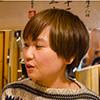 中庭
中庭 -
乾さん、初ですね。なんで参加してくれたんですか?
-
 乾
乾 -
私、ジャズミュージシャンの菊地成孔さんが好きで、今度イベント行くんですけど、ここで皆さんにお伝えして、成孔さん好きな方とつながれると嬉しいなぁと思って。
-
 中庭
中庭 -
え、菊地さん好きなの?そのイベント、即ソールドアウトで取れなくて、わ〜めちゃくちゃ行きたかったやつだ!チケットもう1枚ない?(興奮)
-
 乾
乾 -
すみません、もう一緒に行く人も決まっちゃって...あ、でも嬉しいです、いきなり目標達成しちゃいましたね(笑)。
ということで、菊地成孔さんの『時事ネタ嫌い』という本を持ってきました。 菊地さんのラジオを毎週聞いてるんですが、ある日、新刊本のサイン会のお知らせがありまして。既刊本でも何でもサインしてくれるという太っ腹企画で「ナマ成孔さんに会える!」と思ってこれを買ったんです。
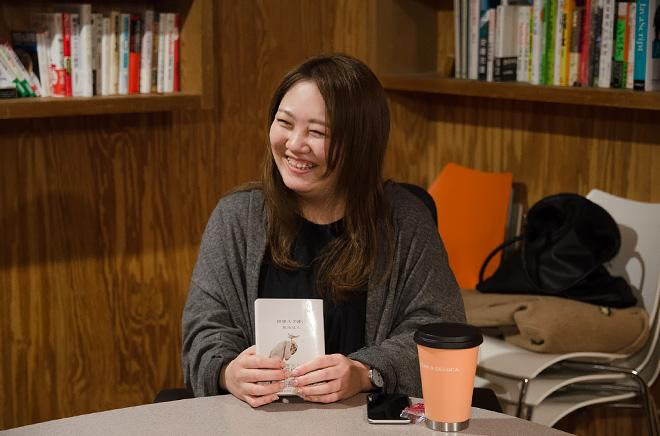
-
 乾
乾 -
生の菊地さんカッコよかったなぁ...と余韻に浸りながらしばらく読んでたんですけど、段々積ん読になり2年も経って(笑)。イベントのチケットが取れて「2度目のナマ成孔さん」に会えることが決まったので、それまでに読破しておきたいと思って持ってきました。
タイトルどおり時事ネタが嫌いという内容で、まえがきに「時事ネタ好き=大人、みたいに時事ネタが人を大人にしてしまうが、その力が私には及ばなかった」とあります。
菊地さんは本業以外にも、洋服や音楽、映画など幅広く評論などもしていて、あ、ちょっと読んでみますね...「何ニュース見て憤ったり、複雑になってんの。暇だね。そんなことよりこれヤバイいいよ、ロバート・ロンゴの新作。世界観変わるよ実際、みたいなやつのまま現在50歳になってしまいました」とか。当時の秋葉原無差別事件やリーマンショックへの菊地さんの目線というか、捉え方が面白いなと思って。時事ネタ知らないと恥ずかしいかな、新聞読んだ方がいいのかな、とか思ってたんですけど、こういうのもアリなんだと。時事ネタ好きな人も嫌いな人も、いろんな見え方がすると思うのでおすすめです。
-
 羽賀
羽賀 -
菊地さんのラジオって、どんな内容を話すんですか?
-
 乾
乾 -
基本的には音楽のことで、ジャズもヒップホップもJpopも南米の音楽なども幅広く。番組(「粋な夜電波」)冒頭に名物の「前口上」があるんですが、菊地さんの声とか言葉の選び方とか話し方がすごく好きで。本読むの苦手だったんですけど、脳内で菊地さんの声で再生しながら(笑)ラジオを聞いてるような感覚で読んでました。
-
 中庭
中庭 -
そのラジオ、私も第1回目からずっと聞いてる!
-
 乾
乾 -
すごい!私はここ2、3年くらいですね。 TBSラジオ一番聞くんですけど、去年「ラジフェス」行ったんですよ、観覧当たって。ライムスター宇多丸さんも見ました。
-
 中庭
中庭 -
私もTBSラジオがいちばん好き!
-
 乾
乾 -
すごい嬉しいです。今日来て良かったです(笑)。
新しい人が来たら新しい出会いあり。同じ趣味をもった人をみつける場にもなった読書会となったようです。
次回の読書会は4月。「わたしが好きな写真集」がテーマで読書会(写真集鑑賞会?!)をおこないます。それではまた!
